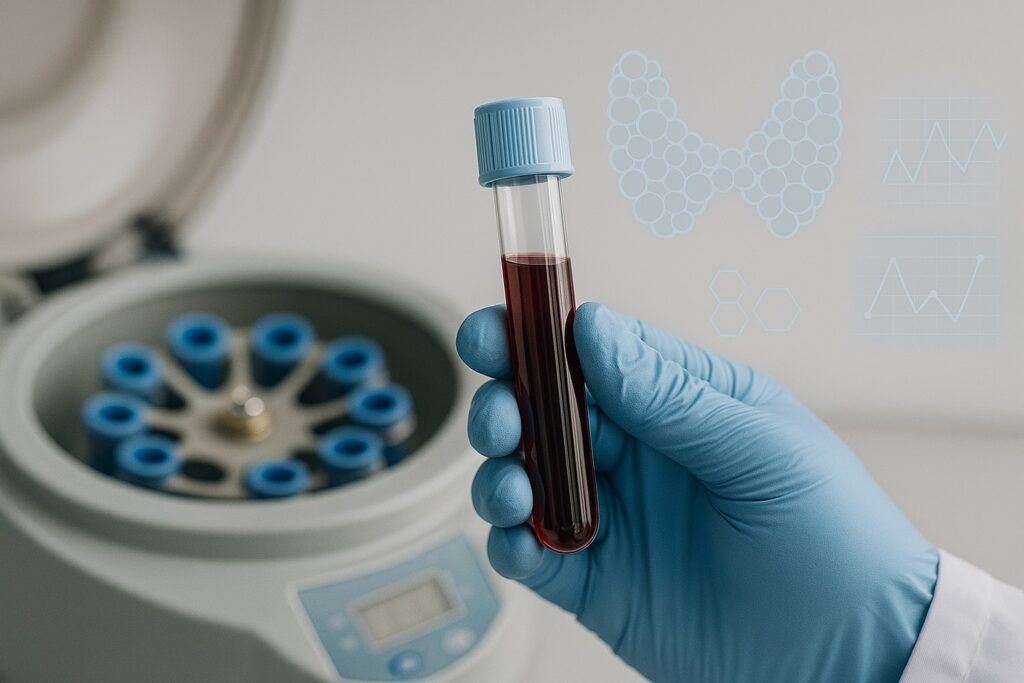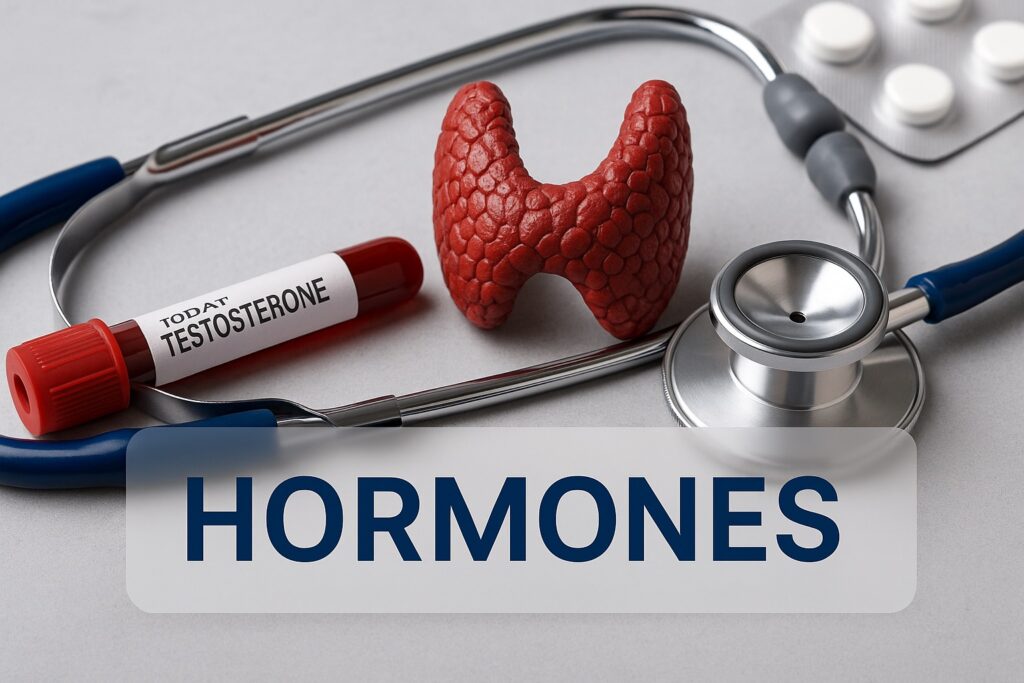Understand & optimise hormone balance
A healthy hormone balance is essential for energy, performance, metabolism, muscle building, sleep and general well-being. However, hormonal imbalances often go unnoticed for a long time - they manifest themselves gradually through symptoms such as listlessness, weight gain, mood swings or exhaustion.
In our practice, we specifically analyse your hormone levels and help you to restore your balance - medically sound, clearly explained and solution-oriented.

Which hormones are analysed?
A balanced hormone system involves far more than just sex hormones. Among other things, we test
Testosterone & free testosterone - Important for muscle building, energy, libido and mental strength (also in women)
Thyroid values (TSH, fT3, fT4) - Relevant for metabolism, energy, body temperature and weight
Cortisol - as a stress hormone with influence on regeneration, sleep and fat distribution
DHEA, oestradiol, progesterone - depending on the issue (e.g. PMS, menopausal symptoms, cycle changes)
Vitamin D & Ferritin - Supporting markers for hormone regulation and energy balance
The parameters are selected individually - depending on the symptoms, training goal or previous history.


Medical evaluation & recommendation for action
After the venous blood sample is taken, your values are analysed in a specialised partner laboratory. This is followed by a medical consultation in which you will receive a detailed and understandable interpretation of your hormone situation - supplemented by specific recommendations for optimising your lifestyle, training or, if necessary, medication.
For whom is hormone analysis useful?
In case of unexplained tiredness, mood swings or loss of strength
For stagnation in training or muscle building
For loss of libido, sleep problems or cycle disorders
As a preventive check as part of preventive healthcare

Frequently asked questions
Our practice focuses on your health and well-being.

What symptoms indicate a testosterone deficiency?
Typical signs can be
Decrease in muscle strength or performance
listlessness, irritability, tiredness
Loss of libido
Weight gain (especially abdominal fat)
Sleep disorders or depressive moods
The symptoms often develop gradually - a blood test will clarify the situation.
How does hypothyroidism manifest itself?
With a Hypothyroidism (hypofunction), the following symptoms may occur:
Increased tiredness and sensitivity to cold
Weight gain despite a normal diet
Slowed pulse, concentration problems
Hair loss, dry skin
In many cases, mild hypofunction goes unnoticed - regular monitoring is therefore advisable.
How can I support my hormone balance naturally?
Even small changes in everyday life can help:
Sufficient sleep and a regular sleep rhythm
Strength training and moderate endurance training
Stress management (e.g. breathing techniques, breaks)
Balanced diet with a focus on proteins, omega-3 and micronutrients
We will give you specific recommendations on request - tailored to your blood count.
When is a hormone test useful?
If you have one or more of the following goals or complaints:
Optimise muscle building
Understanding exhaustion or lack of motivation
Weight problems despite exercise
Cycle problems or menopausal symptoms (in women)
Drop in performance for no apparent reason
Then a targeted analysis is worthwhile - as a basis for clear measures.
Can my family be included in the oncological support?
Yes, if you wish, we can also hold discussions with your relatives and involve them in your care.
Can oncological support also be palliative?
Yes, oncology support can also be palliative, helping to relieve symptoms and improve quality of life.
How can oncological support improve my quality of life?
Oncology support can help you to cope better with your disease, manage your symptoms and cope with emotional and psychosocial stress.
How can I prepare for an appointment for oncological support?
Make notes about your symptoms, medications, questions and concerns before your appointment. This will ensure that we discuss all the important aspects of your care.
Are there any self-help groups you can recommend?
Yes, there are a number of support groups and organisations that offer support and information for patients with cancer. We can help you find the right group.